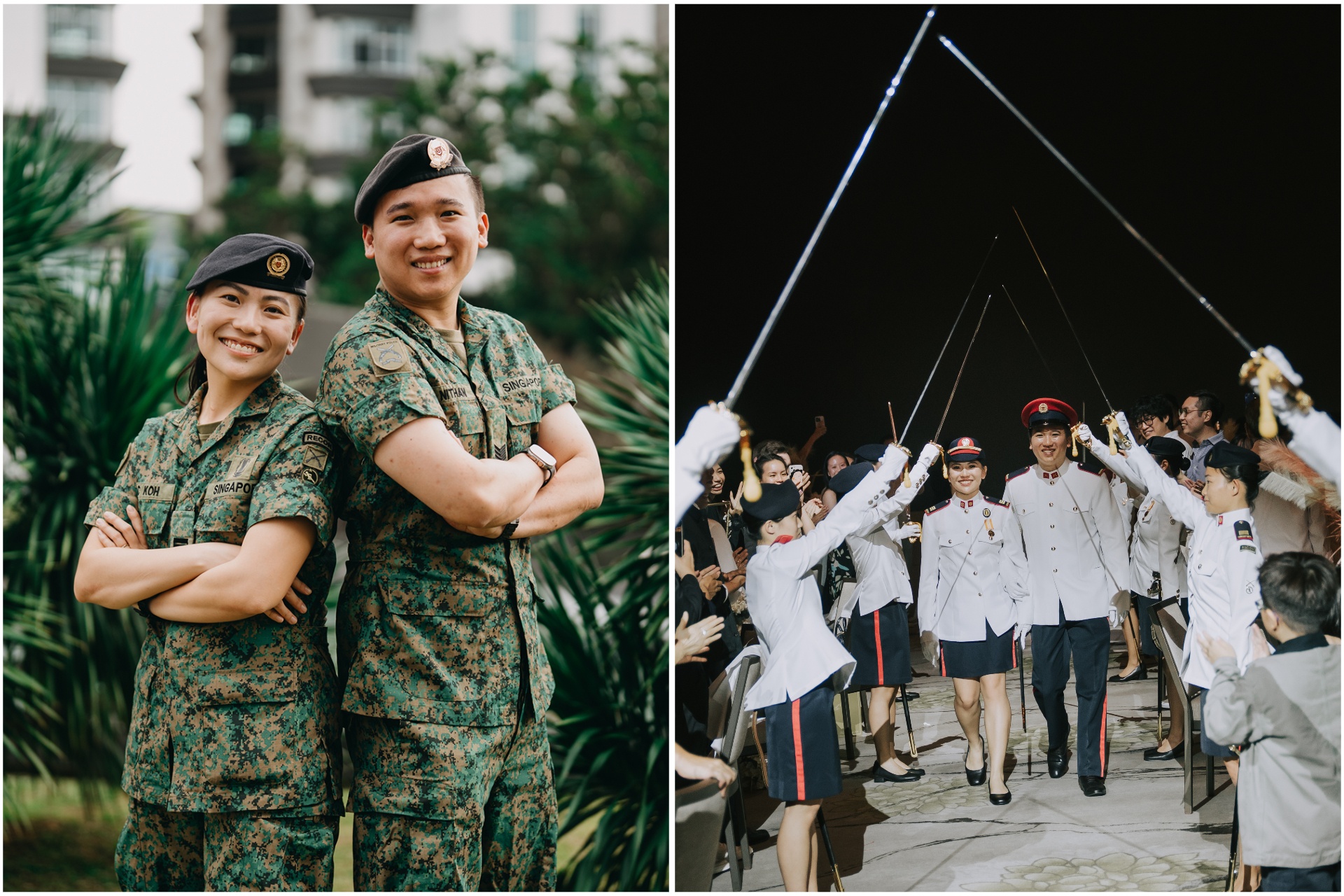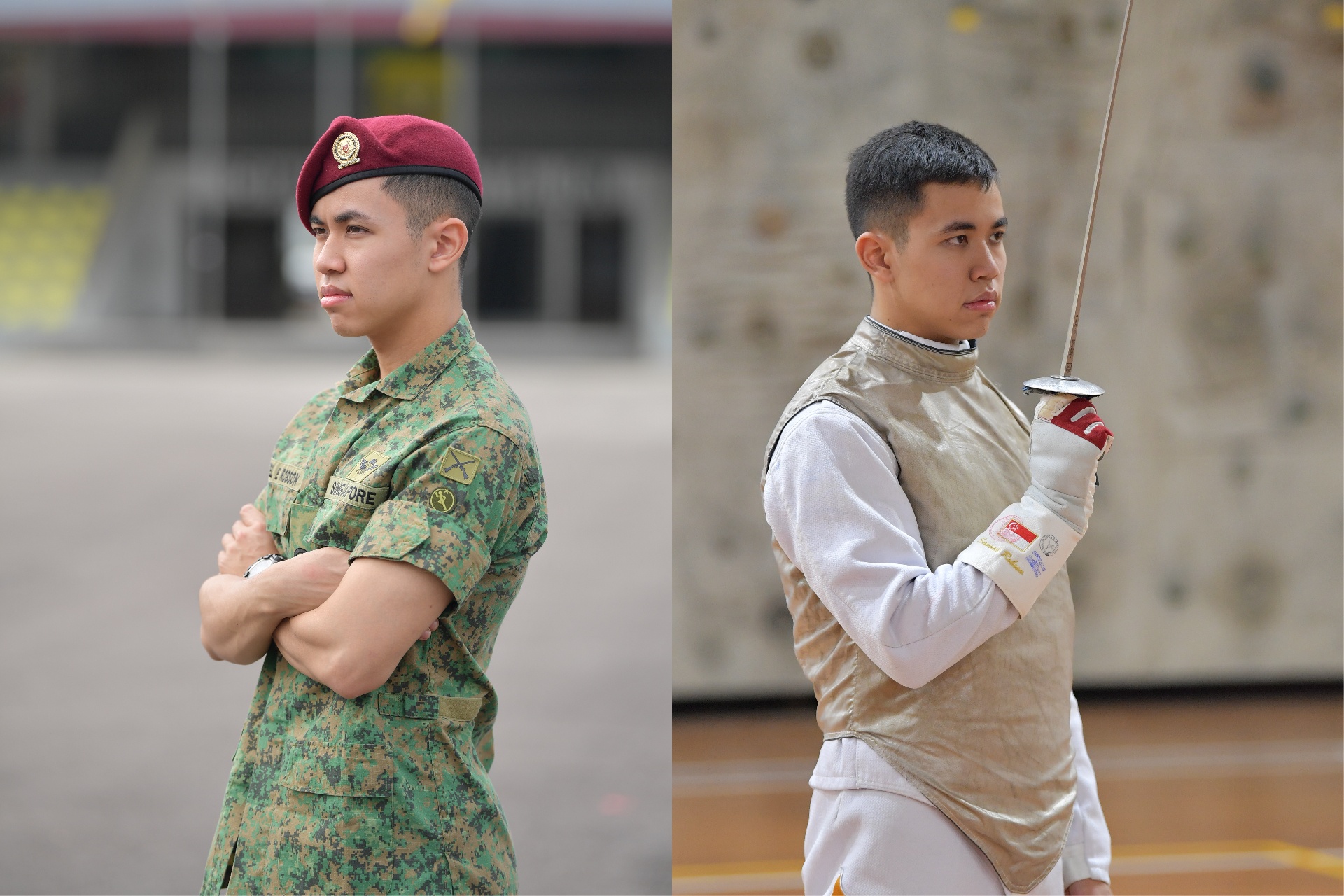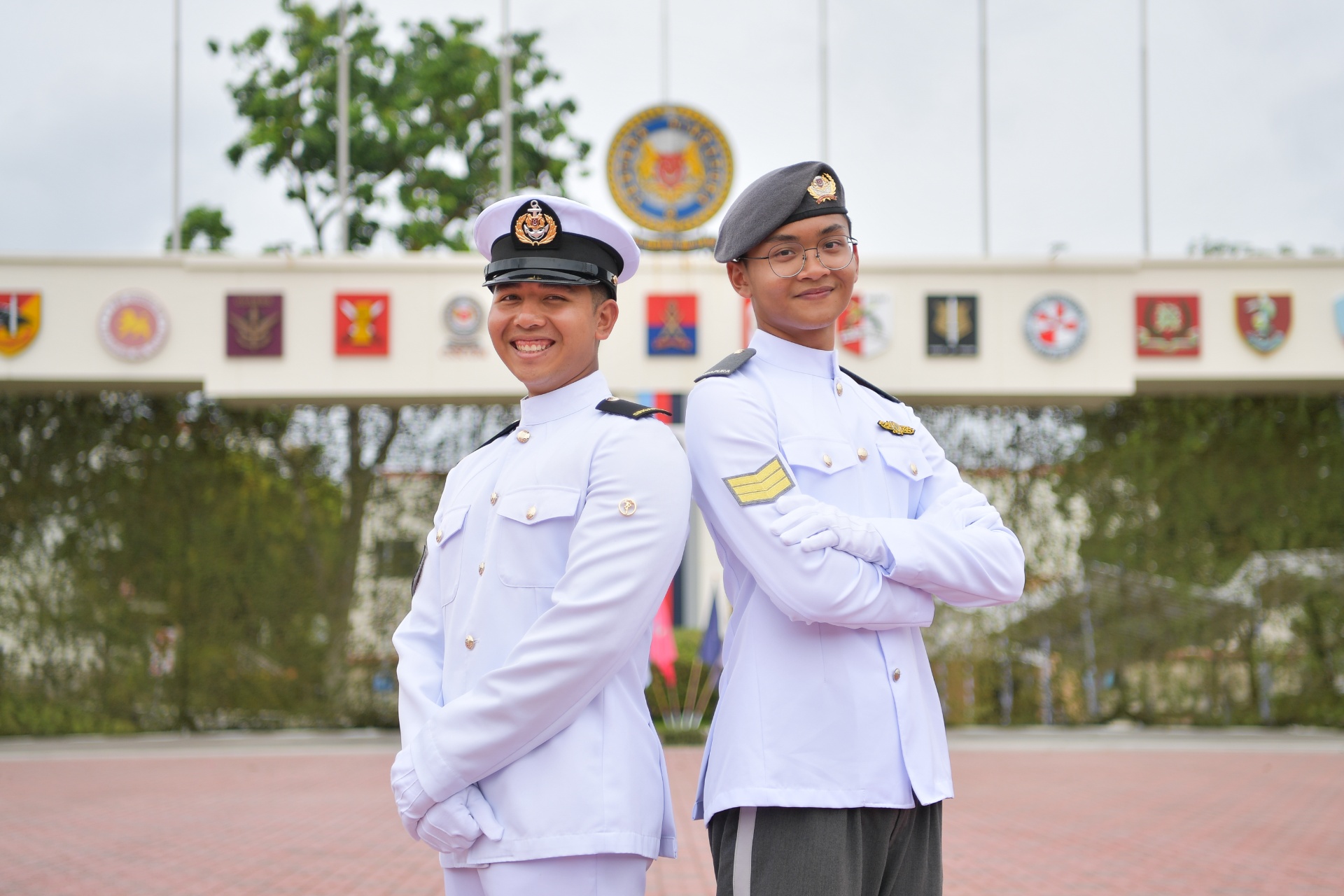PEOPLE
THESPIAN BENG
01 Aug 2017

The real CPL (NS) Lim is more subdued than the rambunctious loudmouth he plays in Army Daze 2, but give him a stage (such as the photo shoot for this story) and he instantly launches into the kind of theatrics you would expect of a stereotypical Ah Beng.
Set 30 years after the original 1987 production, the sequel to Army Daze follows the madcap quintet as they progressed through life and National Service (NS).
Protagonist Malcolm Png, played by Hossan Leong, is now a senior officer in the Singapore Armed Forces (SAF); flamboyant Kenny Pereira, played by Shane Mardjuki, is a celebrated interior designer, and
Teo Ah Beng is a successful entrepreneur.
Bring the (old) Beng on!
For the uninitiated, Ah Beng is the catch-all term given to (usually Chinese) males who are typically unsophisticated and of lower educational background.
In the play, CPL (NS) Lim's character is 48 years old and married with a daughter. "It's tough playing someone who is almost two decades older than I am!" That is where his NS experience came in handy.
"I was put into a company with people from chapalang (slang term loosely meaning "diverse") backgrounds during Basic Military Training," said CPL (NS) Lim, who eventually served in the SAF Band as a flutist.
"There were the tattooed Ah Bengs; the Junior College (JC) and Polytechnic people; those who conversed mainly in English and those who spoke mainly Mandarin. It was really an eye-opener for me as a JC kid!
"If I had known I was going to be a full-time actor, I would have paid more attention (to observing them)!"
Very Singaporean
Asked to describe Ah Beng, CPL (NS) Lim said: "He's very down to earth and has all the stereotypical quirks you would expect - the crudeness, colourful (Hokkien) phrases.
"He's not malicious and certainly not a gangster. He just wants to look after his family and himself. I think that's the appeal of Ah Beng; he's part of the Singapore landscape and there's an Ah Beng in every Singaporean."
Making the most of NS
As a flutist in the SAF Band, CPL (NS) Lim remembered playing at events big and small. Wanting to make the most of his NS days, he also enrolled in part-time studies and earned an Advanced Diploma in Journalism.
"We would have rehearsals (for SAF Band performances) in the day... (Then) once a week, I would chiong (rush) from Nee Soon Camp to my school in Queenstown," said CPL (NS) Lim. "What I learnt during NS was the importance of discipline and using my time wisely. The time is really what you make of it."
These days, he serves as a Rifleman in 812th Battalion, Singapore Infantry Regiment. "You can say I served NS the other way round - and only learnt more about combat when I became an NSman (Operationally Ready National Serviceman)!" joked CPL (NS) Lim.
Growing as an actor
Stepping into theatre straight out of school, CPL (NS) Lim never thought he would be able to make acting a career. "I jumped into theatre because the conditions were right," said the 32-year-old who majored in Psychology and has had no formal training in the performance arts.
With fresh graduands from the art schools and theatre veterans setting up their own companies, there was a new supply of actors and new employment opportunities for them.
His first big break was as part of the ensemble in Dick Lee's Fried Rice Paradise - a role he landed just as he was graduating from the Singapore Management University in 2010. "It was a dream come true; to be on stage with these professional actors was quite surreal."
Fast-forward seven years and he has become a seasoned pro. He has played in mainstream productions such as the musical Monkey Goes West and, most recently, The Great Wall which stars Nathan Hartono.
CPL (NS) Lim has also featured in niche controversial productions like Starring Hitler as Jekyll and Hyde, where he played a police inspector who eventually became a Nazi sympathiser. "It's unimaginable how someone can feel that way, but my character had to do so."
Adding that playing the character last year gave him the most growth as an actor, he noted that diversity is good for the local arts and performance scene. "It's better to have more of all types (of theatre) and not just more of any one type."
ALSO READ IN PEOPLE

When two hearts set sail together
13 Feb 2026
Naval engineers ME2 Gary Lim and ME2 Audrey Ho share how they navigate love, military service, and (soon) parenthood.

I’ve always got your back
11 Feb 2026
She’s an Army officer, and he’s the (NS)man supporting her dreams. CPT Koh Xinci and 3SG (NS) Nitro Chan share their love story with us – including their unique wedding!

He’s an NSF Commando & medal-winning fencer
28 Jan 2026
His team won gold at the SEA Games 2025, and he hopes to represent Singapore in more competitions to come. Meet fencer CPL Samuel Elijah Robson, who is serving as a Commando during his full-time NS.



